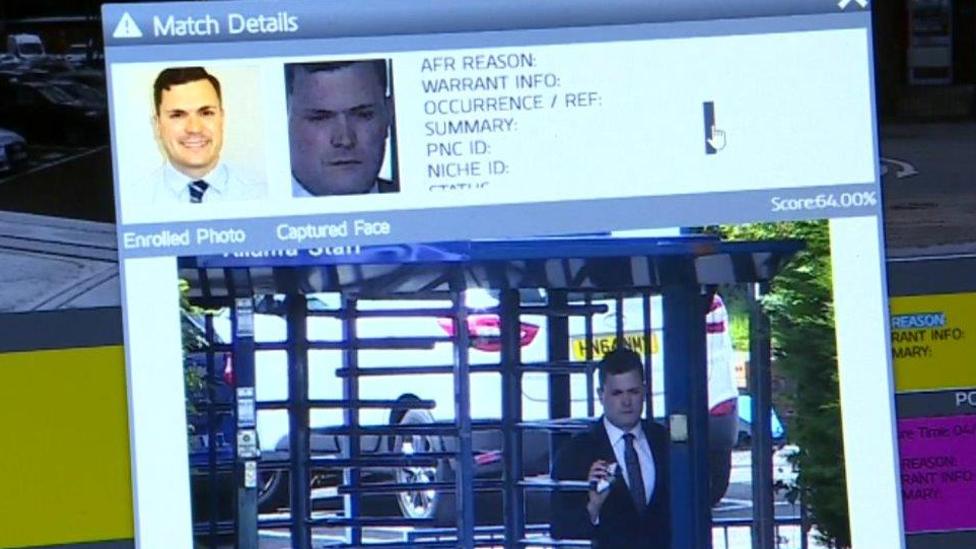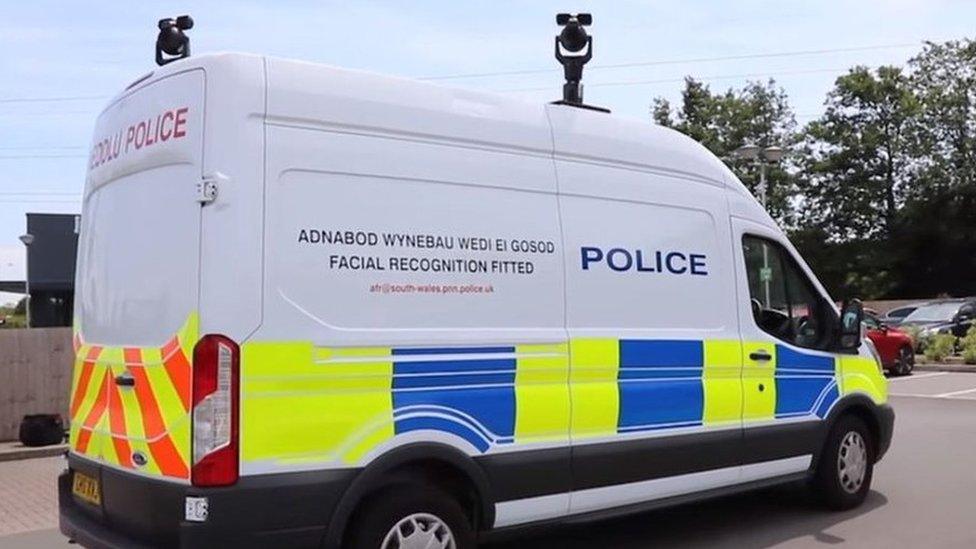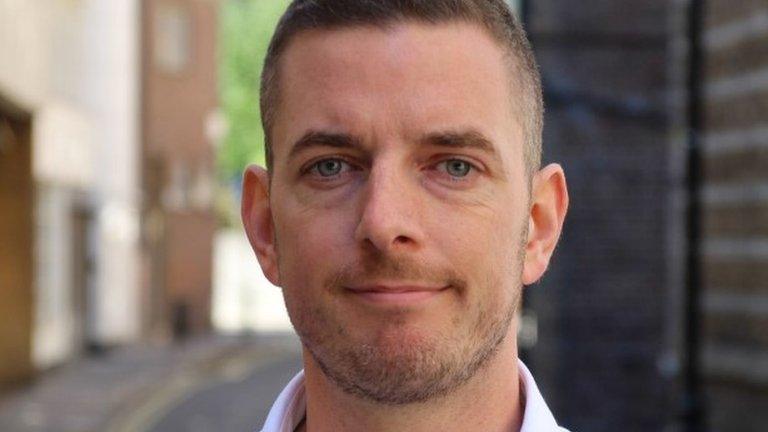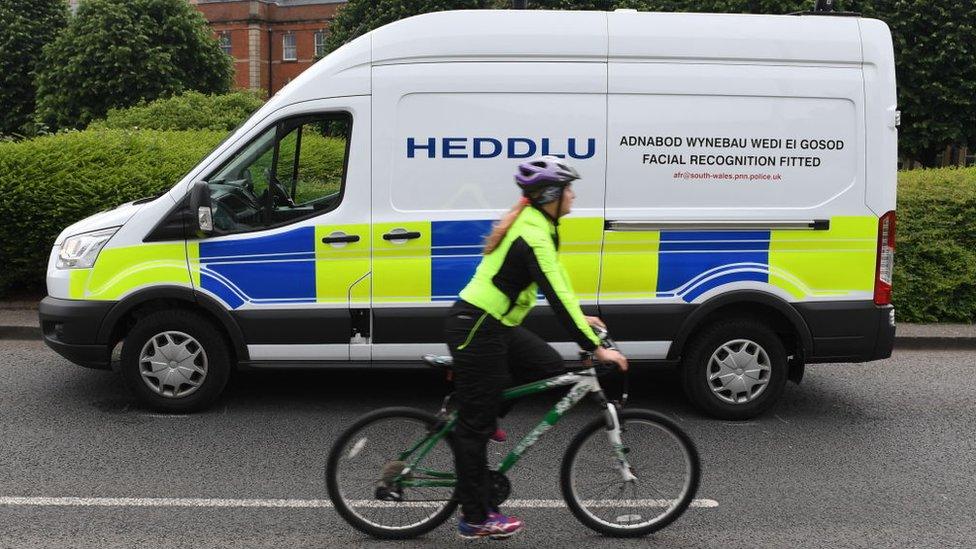Facial recognition plan 'hammer blow to privacy' claim
- Published
- comments

The south Wales force has previously demonstrated the technology with a member of staff
Innocent people could be placed on police watchlists under guidance for facial recognition systems, civil liberties groups have claimed.
Big Brother Watch called it "atrocious" and a hammer blow to privacy.
But the College of Policing said it would help catch some of the most dangerous offenders, including terrorists.
On Tuesday, the College of Policing published a guide for their use for forces across Wales and England.
It is for officers and said the use of live facial recognition technology should be "legal and ethical".
It comes after South Wales Police restarted trials of the technology, deploying the kit in Cardiff city centre last Saturday.
A previous trial in 2017 at sports matches, concerts and live events was the subject of a Court of Appeal ruling which found it breached privacy rights and broke equalities law.
South Wales Police said the new trials will take place to test there is no risk of breaching equality requirements.
Assistant Chief Constable Mark Travis said there was nothing in the Court of Appeal judgment "that fundamentally undermined the use of facial recognition to protect the public".
The move prompted Plaid Cymru leader Adam Price to say: "According to the UK government's own biometrics and forensics ethics group, the lack of representation of ethnic minority faces in the training data on which the technology used by the police is based means it is more likely to identify innocent black people as criminals.
"This will exacerbate the racial disproportionality in rates of detention that you, yourself, have acknowledged."
He called for the technology to be banned from the Senedd steps, where an anti-racism march was held on the same day as the trial.
First Minister Mark Drakeford said concerns about the technology "deserve to be taken very seriously".
South Wales Police, which was asked to comment, said last week that there had never been an unlawful arrest as a result of the technology.
'Mission creep'
In its new guide for officers, the College of Policing said it can be used to find people who are missing and potentially at risk of harm.
Others include terrorists or stalkers who police have intelligence on.
Big Brother Watch director Silkie Carlo said: "We warned about mission creep with this Orwellian surveillance technology and now we see that this new policy specifically allows innocent people to be put on facial recognition watchlists.
"This includes victims, potential witnesses, people with mental health problems, or possible friends of any of those people. It is an atrocious policy and a hammer blow to privacy and liberty in our country."

South Wales Police is considered the national lead force on its use
The group said the UK parliament had never debated it and it should be banned because of the "extraordinary risks" it poses to freedoms.
Emmanuelle Andrews, campaigns manager of human rights group Liberty, external, said: "Introducing new guidance does not solve the underlying problem that facial recognition technology does not make people safer, as it still collects sensitive biometric data from everyone that passes through the camera, fundamentally changing the way we move through public spaces."
The College of Policing said guidance was "clear" and it should be used in a "responsible, transparent, fair and ethical way" when other "less intrusive methods" would not achieve the same results.
"The technology will help police catch some of the most dangerous offenders including stalkers, terrorists and others that the public want off our streets," said its head of crime, Dave Tucker.
"It will be used overtly and unless a critical threat is declared, the public should be notified in advance on force websites or social media about its use."
Related topics
- Published11 August 2020

- Published5 January 2021
